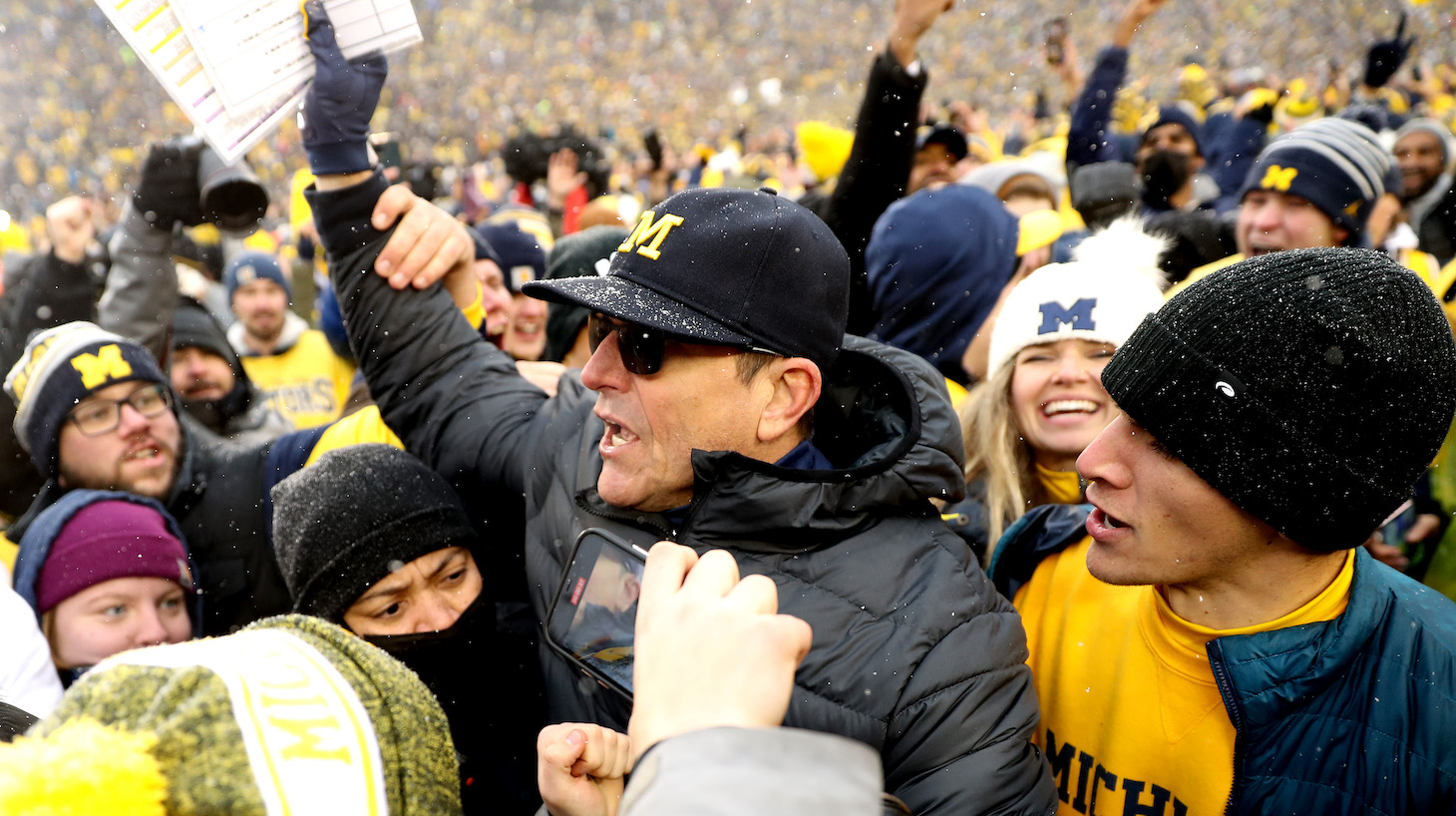Michigan’s bizarre and miserable 2020 football season collapsed, rather quickly, into a pile of jokes. The best one was told five games in by Cade McNamara, who seized the starting quarterback job in a four-and-a-half-hour, triple-overtime win over Rutgers last November. After what would be the team’s second and final win of the year—and no win has ever been less inspiring—he delivered a locker room speech only a dumbfounded, wildly optimistic 20-year-old could. “What happens if we win out, huh?” he said. “Who’s gonna remember all the fucking games before, man?”
Cade McNamara, ladies and gentlemen
— James T. Yoder (@JamesYoder) November 22, 2020
This is the attitude and leadership needed pic.twitter.com/A7qW70kuKI
This was funny in the way it can be funny to listen intently while a small child explains how they believe, like, an airplane works. They are saying something so implausible as to be kind of endearing; you have to give them points for creativity and conviction. But also it was funny because an element of McNamara’s bluster rang true: For all its richness in tradition and ancient grudges and whatnot, college football is a sport where memories run short. What have you done for me lately? Never is this clearer than during rivalry week. A weekend like this one, which half-upended the playoff picture, became an instant classic for the sheer narrative havoc it wrought.
Who is going to remember all the fucking games before, man? Just a week after an Ohio State air attack "sent a message to the rest of college football ... that this team is undoubtedly one of the country's best," as ESPN put it, and extended its Big Ten win streak to 29 games with a fearsome clobbering of Michigan State, the Buckeyes lost "the type of game that results in major changes across the board for a program," The Athletic's incredibly panicked Ari Wasserman wrote, when they fell 42-27 to No. 5 Michigan. Pretty much perfect performances from the Wolverines' pass rush and offensive line brought Jim Harbaugh his first win against Ohio State in six tries. The win Saturday, Wasserman tweeted, "isn't one win. This is a seismic shift on how he's viewed as the leader of Michigan's football program." Harbaugh, too, leaned in to the eraser-like quality of The Game. "The way it feels now," he said afterward. "It feels like a beginning."
The rewriting began at noon in Ann Arbor, then spread elsewhere. It took place in microcosm: His offense held to just one field goal with under two minutes left in the Iron Bowl, Alabama's sophomore QB Bryce Young papered over three possibly Heisman-disqualifying quarters with a stellar 97-yard touchdown drive against Auburn to take the game to overtime, where he'd win and become the new Heisman favorite.
TOUCHDOWN BAMA
— CBS Sports (@CBSSports) November 28, 2021
TIE BALLGAME pic.twitter.com/j4hJI4KfSG
Then there was a Bedlam game that saw some bizarre special-teams play and also Mike Gundy ending a six-game losing streak against Oklahoma to take Oklahoma State to the Big 12 championship for the first time. (His record in this series improved to 3-14.) Asked how it felt for his players to win what might be last of these rivalry games in Stillwater before Oklahoma moves to the SEC, Gundy nicely captured college football's recency bias. "I don't know how much they really think about it," he said. "They're young, they move too fast and go to the next thing."
The power of a good last impression showed even in a game where the stakes weren't so high. This year, Ed Orgeron reached a separation agreement with LSU after two disappointing (and reportedly sleazy) seasons since winning the 2019 national championship; he knows all too well that every accomplishment carries an expiration date. But he ensured he'd be fondly remembered when, down four, Tigers wide receiver Jaray Jenkins caught a touchdown pass with 20 seconds left to play and LSU upset Texas A&M in Orgeron's final game as head coach. The Lafayette Daily Advertiser, in its postgame "report card," noted that "Orgeron kept two streaks alive—the Tigers haven’t failed to reach bowl eligibility or had a losing season since 1999." They graded him an A.






